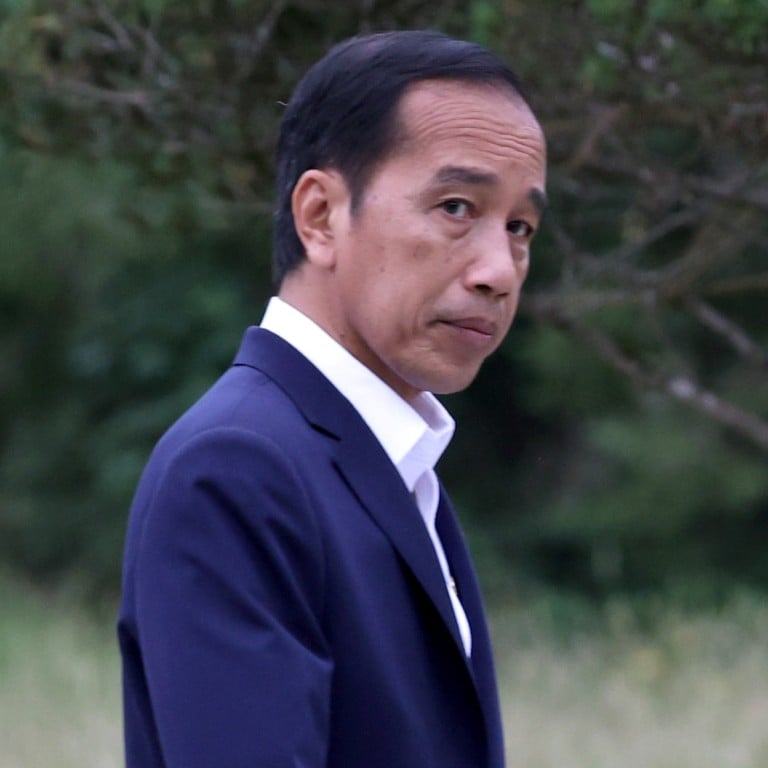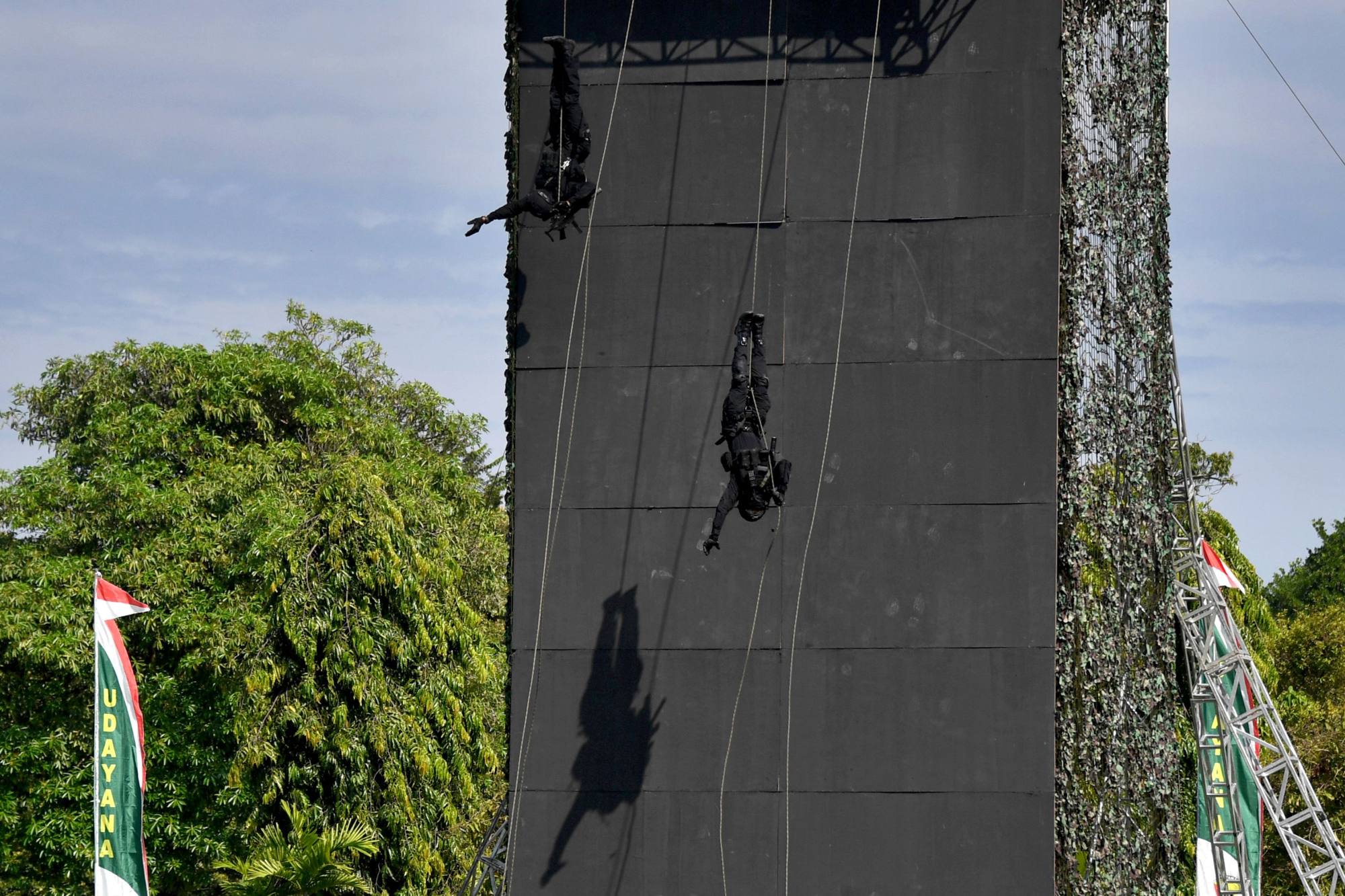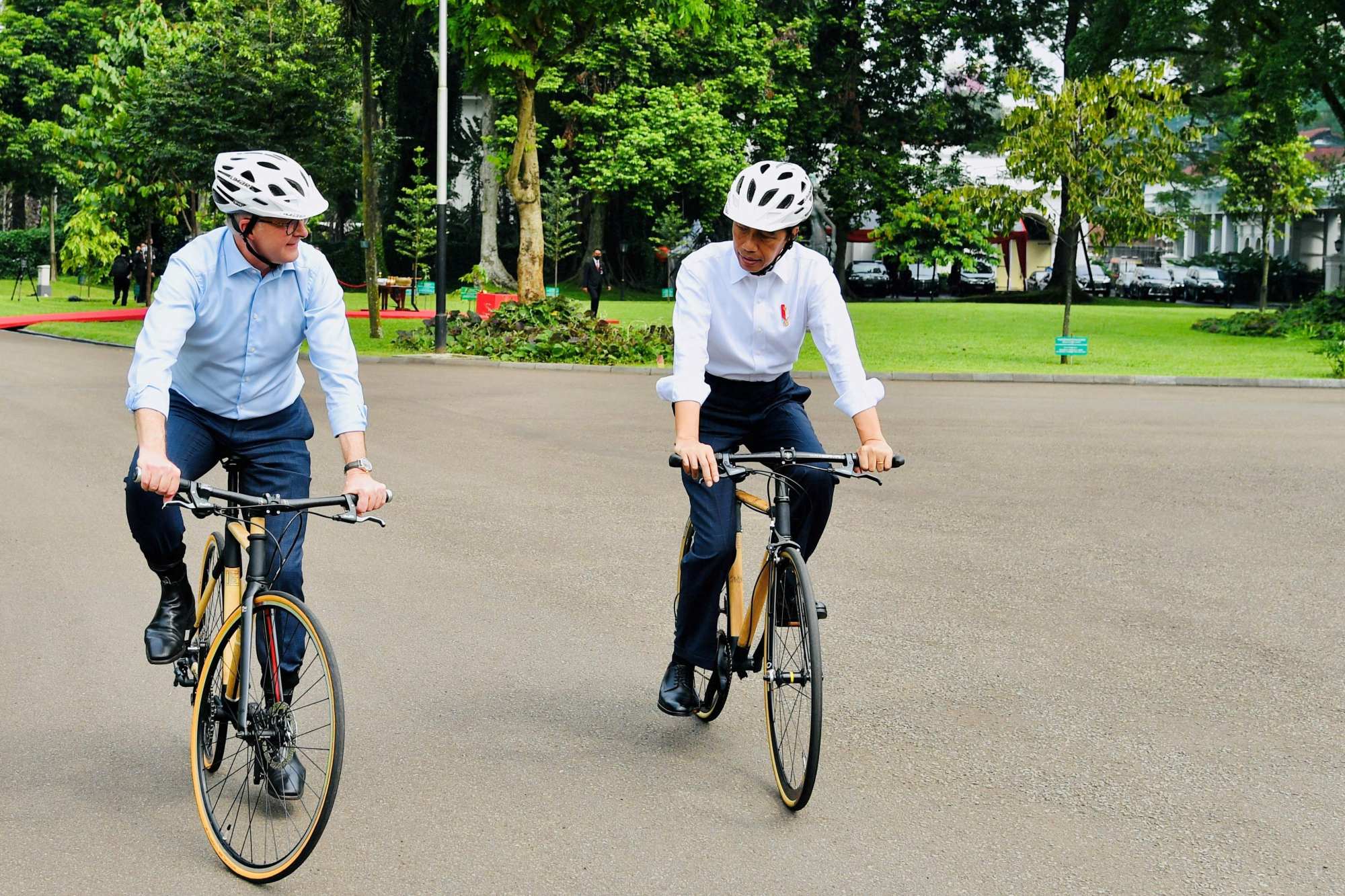
Explainer | What is Indonesia’s Joko Widodo hoping to achieve when he meets Russia’s Vladimir Putin in Moscow?
- Indonesia’s ‘historical nostalgia’, Cold War neutrality means Russia isn’t all that cut off from the world
- Jokowi is likely to take baby steps at meeting with Putin, covering food and export security rather than taking hardline positions on the Ukraine war
He attended Monday’s Group of Seven summit in Munich, and his pit stops in Moscow and Kyiv make him the first Southeast Asian leader to have face-to-face talks with Putin and Ukraine President Volodymyr Zelensky since the war between the neighbours began in February.
Widodo will arrive in the Russian capital on Thursday.

What is Russia’s strategic importance to Indonesia?
Indonesia has close historical ties with Russia that began when the Soviet Union supported Indonesian independence from the Dutch in 1945.
“Indonesia’s first president, Sukarno, had a close relationship with the Soviet Union at the time of independence and that means that Indonesia now has a moral relationship with Russia,” Kosman Samosir, a lecturer of international law at Santo Thomas Catholic University in Medan, told This Week in Asia.
“Jokowi will be keen to help Russia and Ukraine find a peaceful resolution to the conflict as a result of that moral relationship,” he said, using the president’s commonly used name.
In the past, Russia has also been a significant source of weapons and military hardware to Indonesia, with the latter buying armoured vehicles and planes from Russia, although Gilang Kembara, a researcher at the Center for Strategic and International Studies, said that that business relationship was “relatively stagnant” at present due to an increased focus on the United States as a source of arms.
“Still, there is a sense of historical nostalgia for Indonesians about Russia,” he said. “In the spirit of the past, Jokowi will want to help.”
Indonesia’s food crisis likely to trump peace call during Jokowi’s Putin meeting
The Indonesian government has also indicated that Widodo will discuss exports from Russia and Ukraine respectively as part of his trip, with Indonesian foreign minister, Retno Marsudi, saying on Sunday that “it is necessary to secure a grain corridor from Ukraine and open food and fertiliser exports from Russia”.
According to Kembara, Jokowi may choose to focus on this aspect rather than seek to broker a peace agreement in a region he does not know well.
“Jokowi is pragmatic and he will go for the low-hanging fruit. He’s not an idealist. It will be difficult for Jokowi to be an ‘envoy of peace’ when he has little knowledge of the historical context, although it would be a very big win for us if he succeeded,” he said.
Where does Jakarta stand on the Ukraine war?
Indonesia was a founding member of the 1961 Non-Aligned Movement (NAM) along with Egypt and India. NAM was a forum of 120 nations that were not formally aligned with or against any main power bloc during the Cold War.
The Cold War is over but Indonesia has continued to channel the NAM ethos by following what it calls the bebas-aktif approach to foreign policy.
Bebas means independent and thus neutral or non-aligned with any major power block, while ‘active’ refers to Indonesia’s proactive role in international affairs – including Jokowi’s visit to Moscow and Kyiv.
“He will be looking at the visit from the perspective of world peace and he needs to play a role in that while also remaining neutral,” Samosir said.
“Jokowi will also be thinking of his role as the head of the G20 as he will want to ensure that the G20 is a success and this also gives him the opportunity to approach Russia from that perspective.”
Indonesia currently holds the annual presidency of the Group of 20 – an intergovernmental group of 19 countries and the European Union that will meet in Bali in November for economic talks.

On Monday, a Kremlin spokesperson confirmed that Russia has accepted Indonesia’s invitation to attend.
Kembara said that Widodo would also broach broader economic issues alongside the ongoing conflict during his conversations with both leaders.
Said Kembara: “Jokowi will want to bring this war to an end as soon as possible, but this is also about pandemic recovery. Coming to terms with the pandemic and learning to live with the virus. So Jokowi will want to offer spiritual support to Russia and Ukraine.”

What is Putin likely to expect from Jokowi?
The Russian president is likely to be seeking to convince Widodo that his Ukraine invasion is justified, said Yohanes Sulaiman, a lecturer of foreign relations at Universitas Jenderal Achmad Yani in Bandung.
“While the West is relatively united against Russia, Putin wants other countries, notably countries like Indonesia, to either not join the blockade or, perhaps, hopefully, join his counter-west ‘alliance,’ or Russia’s so-called ‘new G-8’.”
The “new G-8” was invented by Russia and posted on Telegram by Vyacheslav Volodin, the head of the State Duma, as a reaction to what Russia called “the break-up of economic relationships” with the US.
The countries in the new alliance are made up of those that have so far not slapped Russia with economic sanctions, including China, India, Russia, Indonesia, Brazil, Mexico, Iran, Türkiye.
However, Sulaiman said that there was little chance of the new G-8 actually being embraced by its so-called members.
“Even though Jokowi won’t join the new G-8, the fact that he is visiting Moscow means that Putin is not that isolated. Big third-world countries like India and Indonesia are still willing to work with him,” he said.

How will Australia and Asean perceive Jokowi’s Moscow overtures?
“Asean neighbours most likely won’t care,” Sulaiman said. “Indonesia is a big cheese and many Asean countries are not that opposed to Russia anyway.”
According to a Pew Research Center poll released in June that surveyed 18 countries about Russia sentiment, in almost all of the countries surveyed, most respondents had an unfavourable opinion of Russia. The exception was Malaysia, where only half of respondents felt that way.
Sulaiman said that he did not think that Jokowi’s Moscow visit would cause any sudden hostility between Australia and Indonesia. The relationship between the two countries was recently renewed when Anthony Albanese made Indonesia his first overseas visit as Australian prime minister.
“Rather, this validates Albanese’s embrace of Indonesia, and that Australia has neglected Indonesia for far too long,” said Sulaiman.


